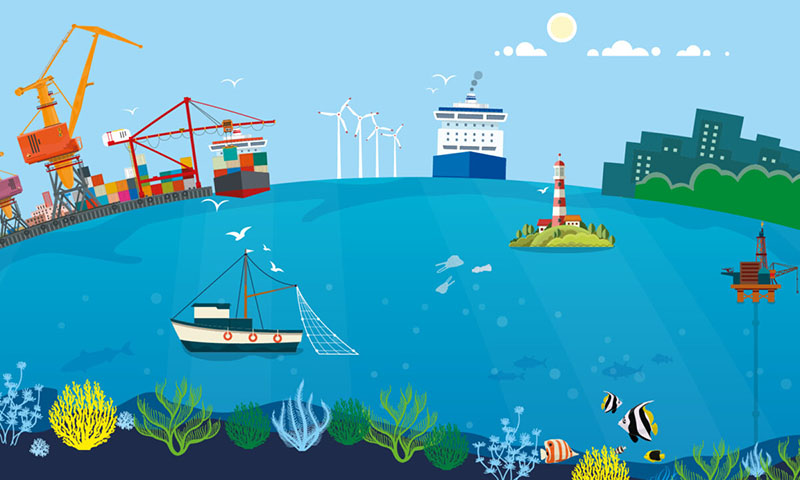Report by Engineering Post
In the wake of the pandemic’s devastating impact on livelihoods, employment, and supply chains , the Blue Economy has emerged as a critical focus for sustainable economic activity.
The Blue Economy encompasses a wide range of areas, such as marine affairs, offshore hydrocarbons, renewable energy, food security, energy security, climate change, ocean conservation, refugees at sea, oil spills and the environment , gender equality, tourism, maritime law, shipping regulations, sustainable development goals (SDGs) international maritime organizations, shipyards, desalination, coastal wastewater treatment , inland waterways, port and shipping digitization, geopolitics, economic zones, water sports, healthcare, and fishing.
The global value of the Blue Economy currently exceeds $ 1.5 trillion annually and is projected to double to $ 3 trillion by 2030 potential..
In Pakistan, the Ministry of Maritime Affairs is leading the country’s blue economy development. The Ministry of Maritime Affairs is working with the stakeholders, emphasizing the crucial role of each, in order to create a comprehensive Blue Economy Roadmap to promote and sustain the blue sectors in Pakistan.
Pakistan’s extensive coastline of 1046 kilometers and its 240000 square kilometer Exclusive Economic Zone (EEZ) in the Arabian Seas provide abundant marine biodiversity, offering significant opportunity for sustainable development and economic prosperity through the blue economy.
The blue economy of Pakistan is a diverse landscape , encompassing sectors such as fishing, aquaculture, shipping, ports and ship recycling. These sectors have the potential to enhance the livelihoods of coastal communities , improve food security, and create employment opportunities.
The China-Pakistan Economic Corridor (CPEC) is designed to promote maritime trade and connectivity, further supporting the blue economy. However, addressing the challenges such as overfishing, pollution, and maritime security requires collaborative efforts . Strategic planning, infrastructure development , advanced technology, marine tourism , renewable energy, and establishing maritime commerce routes are essential for the growth of Pakistan’s blue economy.
details regarding Ports Management Sector, Shipping sector, Ship Recycling and Fishers Sector have been avoided for want of space.
In a nutshell, the Blue Economy concept is becoming more popular as it advocates for better management of oceanic resources. For countries like Pakistan, embracing the blue economy has the potential to boost the national economy growth and create employment opportunities. The blue economy not only involves more than just economic prospects, it also focuses on protecting and enhancing intangible ‘blue’ resources.







